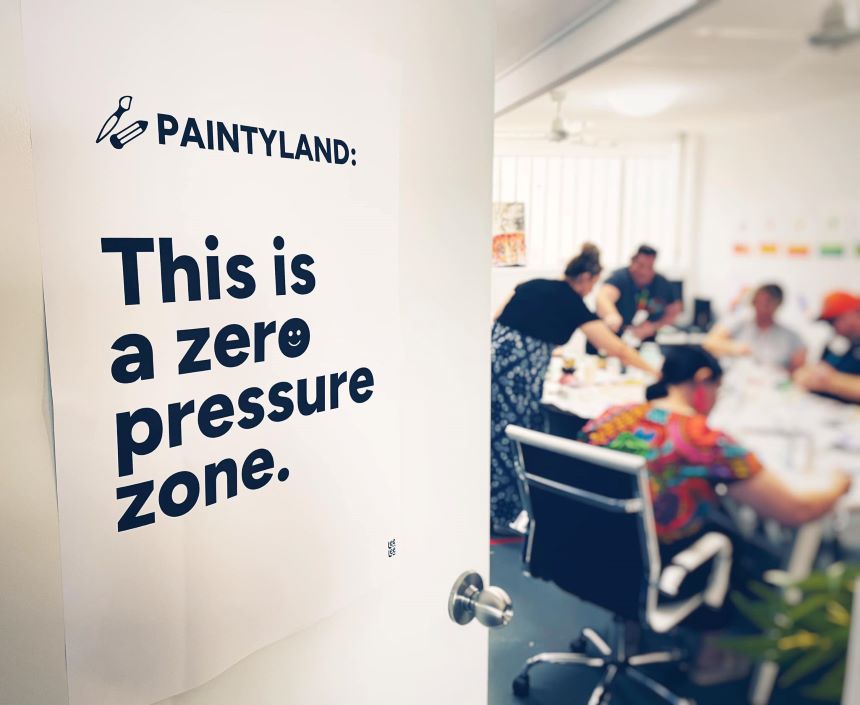
The Wide Bay Arts in Health Project has been a year to homeruns in hope and innovation in healthcare, bridging a gap between art and wellness in the region.
This pilot initiative is a collaborative effort between Arts Queensland, the Wide Bay Hospital and Health Service (WBHHS), and the Arts in Health Consultancy based at the Queensland Children’s Hospital in Brisbane.
Among its standout components is Project Four, an arts-based social prescribing trial program aimed at fostering meaningful connections and supporting mental health recovery journeys through creative expression.
Workshop facilitator LeeLee was one of six involved with the project, each with different strengths and creative expression.
While reflecting on her experience LeeLee said connection is crucial for wellness.
“I was saying no to arts facilitation opportunities for over five years because I told myself a story that I couldn’t do it solo. I thought I was ‘too sensitive’ and I couldn’t handle it; I’d be so flattened post-workshop that I couldn’t ‘people’ for days. I repeated the ‘I can’t do that’ story over and over internally and eventually believed it,” she said.
“Guess what? I was wrong.”
Through tailored training in trauma-informed, person-centered approaches, supported by WBHHS program coordinator Danni Stranieri, LeeLee found the confidence and skills to break free from her self-imposed limitations.
“I am thrilled to say I’ve left that story behind me in the dust,” she said.
Over the course of six art workshops facilitated by LeeLee as part of the ‘Creative Connections’ Arts in Health Pilot Program, participants experienced the profound impact of creative engagement.
The workshops emphasised play, social connectedness, and non-clinical peer support principles, offering a safe space for mental health clients to express themselves, connect with others, and find joy in the creative process.
The initiative also aimed to empower arts industry professionals by equipping them with the skills needed to facilitate community-based programs using non-clinical approaches.
For LeeLee, this has been a transformative journey both professionally and personally.
“The feedback I’ve received from the workshops has been humbling,” she said.
“I’m not the only one that’s been lit up from non-clinical, no-pressure approaches to art-making, embracing play, and social connectedness.
“Thanks to program coordinator Danni for all of her encouragement, stellar organisation, and training. It’s been a game-changer for me as a facilitator and a huge gift.”
For participants, the workshops provided a vital connection to the wider community and a complementary approach to traditional mental health interventions.
The program demonstrated the positive impact of engaging in creative processes combined with peer support practices, underscoring the importance of such initiatives in holistic healthcare.